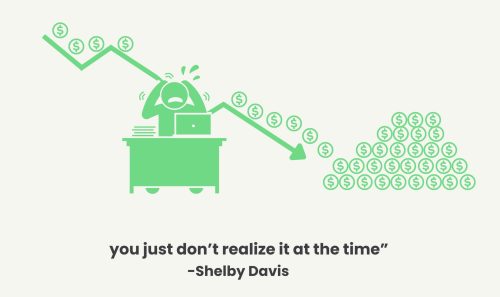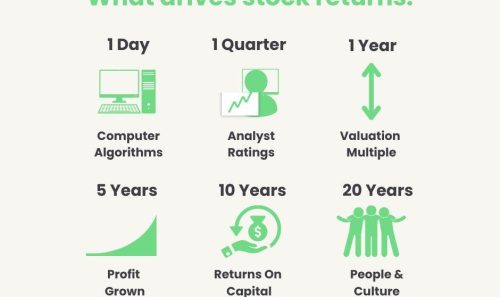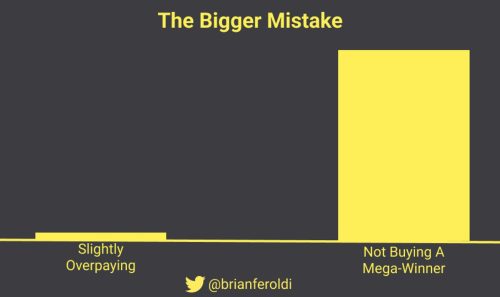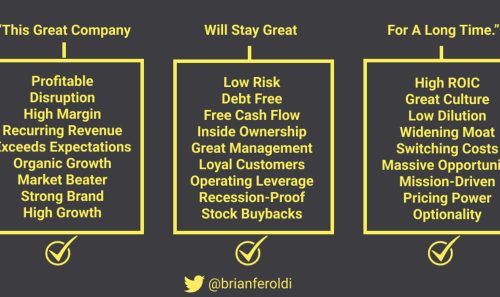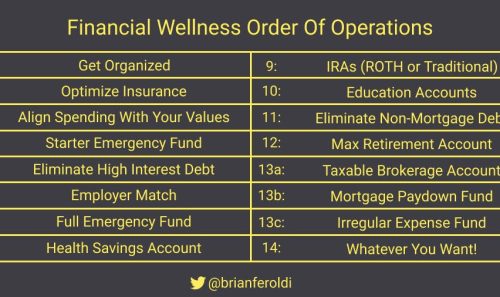🧠 Ben Graham’s Investing Secret
View Online | Sign Up | Advertise
Friends,
Benjamin Graham is widely credited as the inventor of value investing. His first book, Securities Analysis, remains a top-seller to this day.
In the book, Graham champions a 3 step investing process: determine the intrinsic value, buy when there’s a huge margin of safety, and diversify.
Graham was able to generate 20% annualized returns for his investors over a 20-year period (3,700% total). The market’s annualized return over that same time frame was just 12% (860% total).
Clearly, you’d be wise to follow Graham’s process…right?
That would make sense if Graham’s process allowed him to achieve those market-beating returns. However, a little-known secret is that Graham’s investing success was largely owed to him breaking most of his rules.
Graham revealed that the lion’s share of the alpha he generated was due to an investment in a single growth stock: GEICO. His investment in GEICO violated many of Graham’s investing rules — especially regarding diversification.
That’s right: The inventor of value investing owes much of his success to a single growth stock.
The same can be said of Graham’s best student, Warren Buffett. Most books written before 2015 point out how Buffett avoided technology stocks. Yet, Buffett’s most successful investment ever (on a dollar basis) is Apple, which comprises more than 50% of Berkshire’s portfolio today.
Does this mean that learning the “rules” of investing is a waste of time?
No! Good investing rules should be followed 99% of the time. However, if you want to wildly outperform the market, the most important rule is to override all the other rules when a stellar investment opportunity presents itself.
Life-changing opportunities don’t present themselves every day. If you get one or two per decade — and act on them — that’s all you need to do well.
In the meantime, keep practicing the tried-and-true rules about diversification, buying at reasonable valuations, and owning quality business. Doing so will ensure you stay in the game long enough to see a once-in-a-decade opportunity.
Wishing you investing success,
– Brian Feroldi, Brian Stoffel, & Brian Withers
P.S. Want to up your financial statement analysis game? Join us next Tuesday (December 19th) at noon EST for a free webinar — The Investor’s Guide to Financial Statements. We’ll provide an overview of the three financial statements, how to find them, and how to interpret them quickly. Click here for one-click registration. All RSVPs will be sent a replay.
Together with Notion*:
|
An example of how I use Notion to stay organized. |
I (Feroldi here) have been creating content online for nine years. I’ve tried many different organization tools over that time, but keeping my digital life in order has still been a huge challenge.
I finally solved this problem earlier this year when I switched to Notion. This incredibly productivity app has become the home base for all our online content, including social media posts, videos, newsletters, and more.
Now, I can’t imagine life without Notion. Notion makes it easy for our team to stay organized, share information, and communicate effortlessly.
I was initially hesitant to switch to Notion, but after starting with a free trial, I quickly learned why so many of my creator friends have made it a cornerstone of their business.
One Simple Graphic:
A mistake I’ve made many, many times:
|
|
One Piece of Timeless Content:
Charlie Munger discusses airlines, cereal makers, and bottlers and why some industries aren’t worth investing in.
One Thread:
Diversification is a popular technique to improve long-term investing results while lowering risk. But why does this work? 10-K Diver takes a look at the math behind this popular strategy.
|
One Resource:
As we come upon the end of the year, you might hear media news outlets talk about a Santa Claus rally. But what is it all about? This article covers the term’s origins, why it happens, and its history.
One Quote:
|
|
More From Us:
👨🎓 NEW! Want to learn the basics of accounting? Click here to enroll in a 5-day email course that covers the three financial statements in detail. It’s completely free.
📗 If you’ve read Brian Feroldi’s book, he’d love a review.
👨🎓 The next cohort of our flagship course, Financial Statement Explained Simply, is starting in January 2024! Click here to join us.


